Tradesperson Interview: Lydia Crowder, Drywaller
With nearly 20 years of experience, drywall finisher Lydia Crowder shares her favorite projects and tools and the work she does to educate others in the trade.
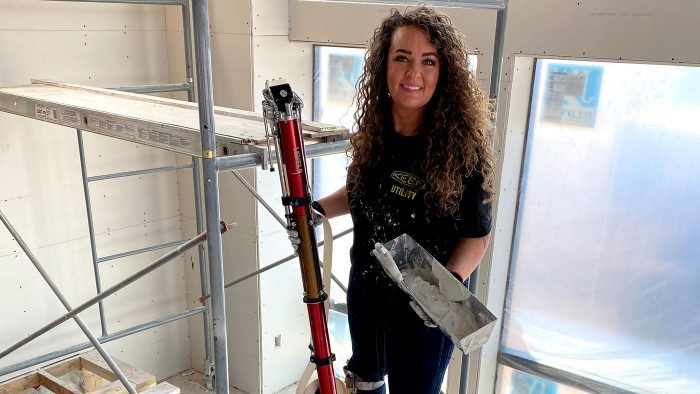
Lydia Crowder (she/her) is a drywall finisher based out of Bozeman, Montana, where she co-owns Trinity Drywall with her husband. You can check out more of Lydia’s work via @drywallshorty on Instagram, YouTube, Facebook, and TikTok.
Q: Describe the work that you do in the home-building world? How did you get into the craft?
L: I am a drywall finishing contractor; my husband and I come in after all the drywall boards are hung and finish the walls to the desired finish of the builder. I got into the trade via my dad. I had graduated high school and went to a semester of college, and it just wasn’t the right fit for me. I was 18, working a boring job, and my dad asked if I wanted to come work for him and his drywall finishing business. I said YES and started the next day!
He didn’t let me off easy, though; I started off scraping and cleaning floors, hand-taping the tiniest closets and spotting screws in the garage. But I loved it; it was incredibly satisfying to come back and see what you had accomplished with your hands. I got my husband into the trade when we were just dating and was able to train him and teach him the trade! Now I’m 19 years in and it’s still incredibly satisfying. I look forward to work every day.
Q: What kind of projects do you typically work on, and which ones are the most exciting or fulfilling for you?
L: Bozeman, Mont., has grown immensely the past few years and new construction is booming here. All of the jobs I work on are new residential or commercial construction. Having been in the trade for so long, I really look forward to and enjoy doing complex custom homes. They challenge you, especially the multi-million dollar houses. They have all sorts of amazing architectural details and you really have to be on your game to make sure the project turns out right. We did one a few years ago that was a custom home for a framer. He wanted to challenge himself on the framing and in turn it challenged us on the drywall end. It had vaults everywhere, huge custom windows, and intricate details. It turned out amazing and I personally enjoyed the challenge of the project.
Q: Tell us about any favorite materials, tools, or techniques you’re finding helpful right now.
L: Drywall materials haven’t changed a ton but I do have my tried-and-true favorites. I’ve used all USG compounds since I started and they’ve stayed consistent throughout my career. Trim-Tex has a new Fast Edge Paper corner bead that has been very impressive to work with—we’ve been having great results with the product. Skimming blades are an upgraded version of the old-school Darby and they are a must-have in anyone’s finishing arsenal. They are fun to work with and are life-savers in areas where a traditional knife or trowel just isn’t enough. SpySponge is brand new and very cool; it is a lighted sanding sponge. Great for smoothing walls, touch ups, dark areas—it’s a really innovative product!
Q: Your Instagram says you are also an instructor of online courses about the trades industry. Can you tell us a little bit more about that?
L: I had the amazing opportunity to join The Build Show Network and teach a drywall course for M.T. Copeland. I film weekly videos for The Build Show on drywall finishing, the projects we are working on, and anything drywall-related. It’s really fun to open the trade up, start talking and get people interested in drywall. The course I taught with M.T. Copeland was such an amazing experience. I go through just about everything drywall-related, from what drywall board is to finishing with automatic tools. The entire course is almost six hours and I’ve received amazing feedback from people saying how much taking the course has helped them! It’s such a cool time for the trades with all the resources available and people with tons of experience willing to share their trade secrets. It’s all about building a community and making the trades better for everyone.
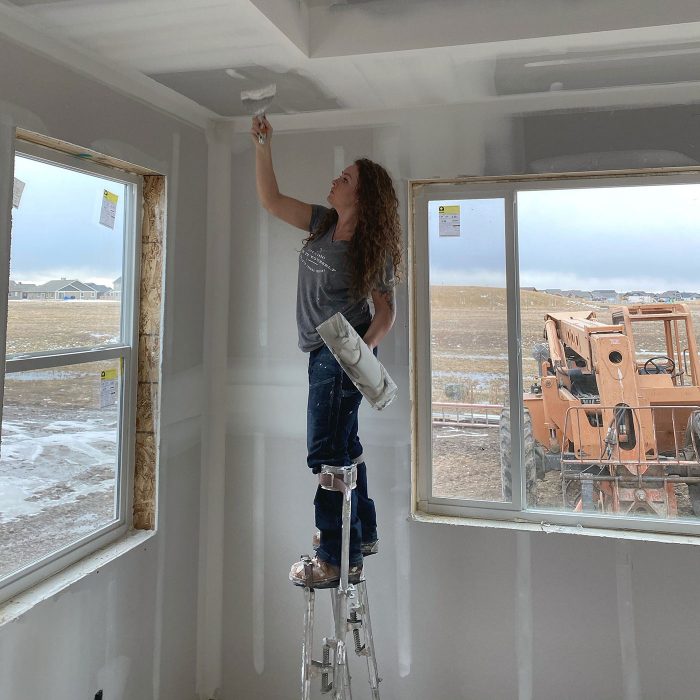
Q: What have been the crucial steps or learning points to get where you are in terms of drywall finishing/home building?
L: Don’t think you know everything; be a sponge! If you walk onto the job thinking that you can’t learn anything more or you’re at the top of your game, you’ve already lost. Trades are always changing and if you refuse to change or try new things you will never grow. When I look back over just the past 5 years, I’ve changed my techniques and tools multiple times. It’s important to be open to trying something new. The worst case is you go back to what you were doing before. It also keeps the job interesting if you are trying new techniques and tools.
Q: What sort of challenges/barriers have you faced in your learning process or career?
L: Finding a work/life balance is one of the toughest challenges. When you own a business it’s hard to leave it at work, especially when you work with your spouse. It’s hard to take time for yourself and make sure you’re not working all the time. When I was younger, I missed out on a lot due to deadlines, pressure at work, and not being willing to ask for help. It’s easy to get burnt out and exhausted and then you’re dreading the upcoming months because of the amount of work. I’m working on creating a better work/life balance and saying no when a project isn’t the right fit.
Q: You’re a business owner–what unique challenges and benefits do you face in that role as opposed to when you worked as an employee in the trades?
L: Growing up, my dad was self-employed and I was exposed to the life of being your own boss. We rarely took vacations, summer was the crazy time, and weekends were just another day to work. When I was an employee working for family, I still carried that life. You of course want your dad’s business to succeed and it’s hard to say no when you know they need help. Now it’s my husband Ryan and I that own our own business and we are trying to find that balance after 15 years of being self-employed. Work doesn’t get done unless you do it, so it can be challenging to find the motivation sometimes. It’s hard work, but so rewarding seeing the life you’re able to provide for your family.
Q: What are your aspirations in the industry for your career?
L: Educating builders, homeowners, DIYers, everyone about drywall! It’s a trade that can be secretive because people don’t want to share. But that has created such a closed-off atmosphere. No one has any idea of all the work that goes into creating a perfectly executed job. With more education on the process of finishing, hopefully it can create a better environment for the drywall stage of a project. If the builder knows what to expect, they can create a better site for the finisher which in turn creates a better product.
I would love to make drywall one of the most important parts of a project—it’s what’s creating the spaces we all live in. It’s funny when you look at a home and no expense is spared on a kitchen that will be out of date in 15 years but the drywall finish is often overlooked and under-budgeted. If you have a fantastic kitchen but a horrible drywall job, it takes the focus away from the things you want people to focus on. We have to start thinking of drywall as the canvas for our homes, and we want that canvas to be the best it can be.
Q: We’ve read some incredible ideas you have about how to make the trades more accessible to women–can you talk to us a little bit about that?
L: I think women teaching women would be amazing. I’ve noticed that being approachable, answering the simplest of questions, and creating an environment in which you can learn are the most important things. You need to have the space to ask why and how, and get hands-on. My hope is that someday, there will be a mobile training option. Something that travels to different areas, sets up a demo space, and has women teaching women how to use the tools and the fundamentals of the trades; creating an environment to learn, try something new, pick up that tool, and build with your hands. The trades are experiencing a major shortage of employees and this would be a great way to get women involved in a casual way. No pressure, just tradeswomen being available and sharing what they know.
Photos courtesy of Lydia Crowder
RELATED STORIES
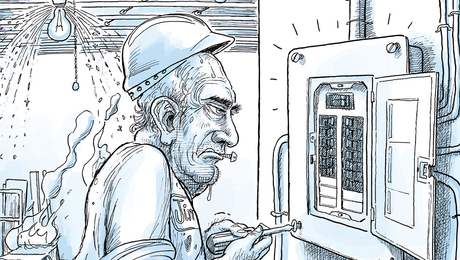











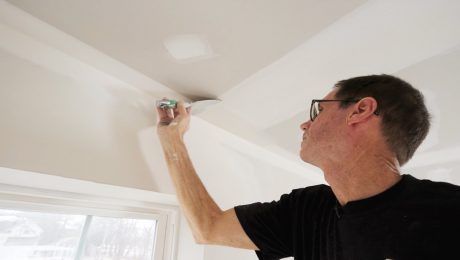
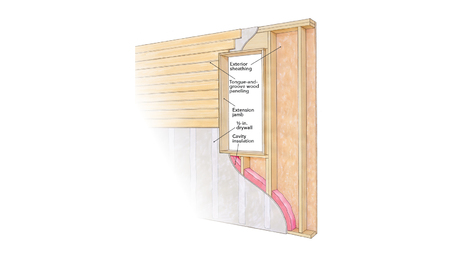





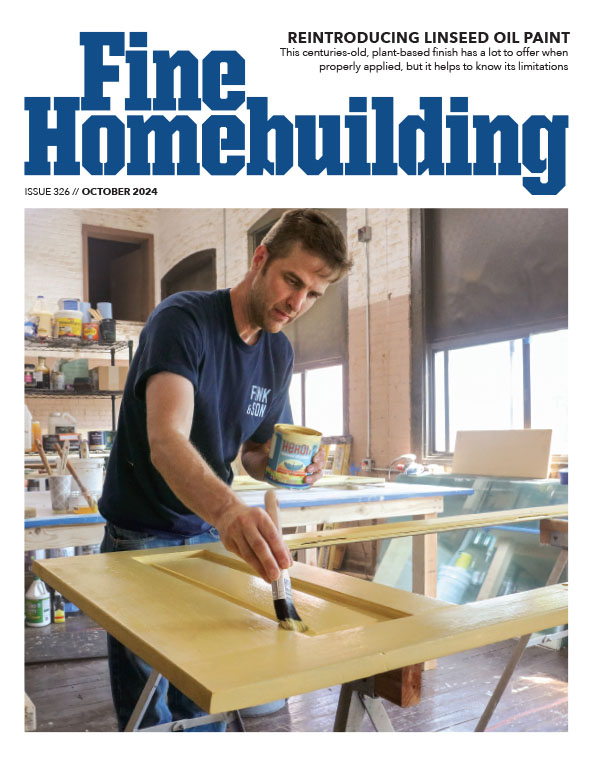





View Comments
I'm impressed!
Wanna come and redo my house?
Kinda tired of seeing where every ceiling joist is.